My name is Rob Campbell and I'm the younger brother of a commercial beekeeper living and working near Roseneath Ontario. I have a lot of content, pictures and ideas relating to beekeeping in Canada. Every summer I help my family get the beehives ready for the summer honey flow of white clover, purple loosestrife, goldenrod and buckwheat honey. I'm there when they go around and visit the many different bee yards, which are gatherings of 12 - 20 separate beehives. I go around with them in early July when they add honey boxes to the strongest hives in anticipation of the summer crops, and I always help collect the honey in the fall. The weather and the strength of the hives are the two most important factors in determining whether or not the beekeeper will get a crop. For the last few years we have had weaker bees and our crops have been reduced despite having perfectly good weather with more than enough rain and hot days ... the bees are in trouble, but we're still making honey.

Beekeeping and Harvesting the Honey Crop in Southeastern Ontario
by roberrific
Here are images and anecdotes related to my time as a commercial beekeeping assistant helping harvest clover honey in southeastern Ontario, Canada,
Beekeeping - Taking off the Queen Excluder
Removing the queen excluder under the honeyboxes
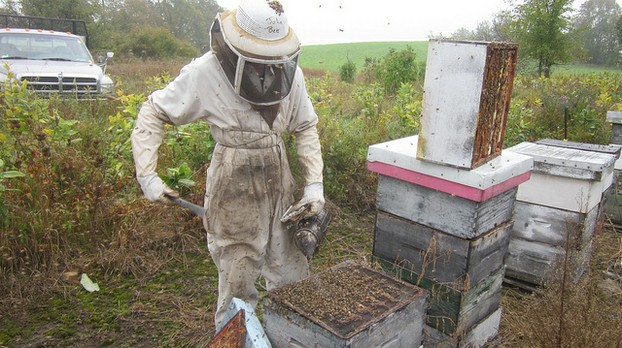 Taking off the queen excluder under the honey super |
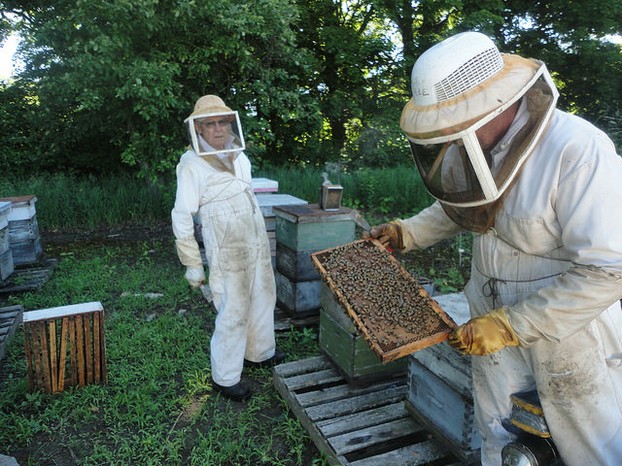 Beekeepers Checking Full Frames of Brood |
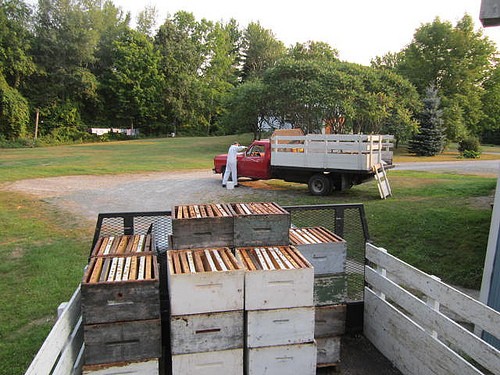 A truck load of empty boxes for beehives |
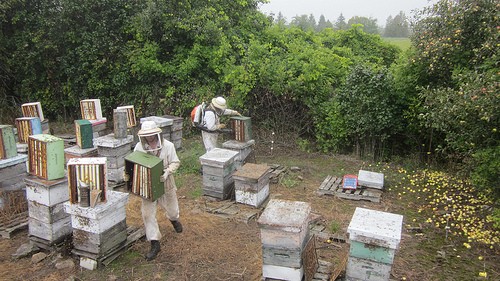 Harvesting honey in an old apple orchard |
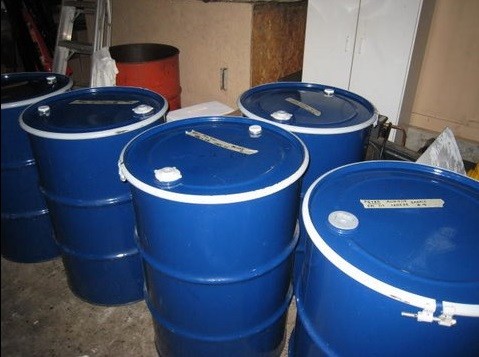 Honey barrels full of clover honey for sale to honey packers |
The 2014 Honey Harvest in Canada
I help my brother take off honey supers from over 500 beehives.
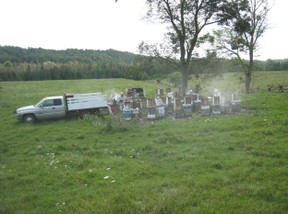 Probably the very hardest job a commercial beekeeper has to do happens in August and September when they must go out and harvest the honey. This is like waging war with the bees.
Probably the very hardest job a commercial beekeeper has to do happens in August and September when they must go out and harvest the honey. This is like waging war with the bees.
Wearing hot and heavy protective suits they sweat buckets in the hot sun and yet still get stung by crawling insects that penetrate or get pinched in the wet folds of their garments. The smell of human sweat also drives bees crazy!
Sometimes I think the beekeepers should suffer a little bit to pay in nature issued karma units for the terrible evil thing they are doing that day. In a few hours they steal away the food supply the hive worked all summer to create for the winter.
Let's remember, several hundred thousand honeybees worked very hard all summer long flying about from flower to flower gathering up nectar to fill the wax comb frames inside the honey boxes on top of their beehives. They don't want anyone to come along now and take away their food savings, and so they will fly and fight and sting and really try their best to kill any would-be thief... and ANY there includes us, the beekeepers.
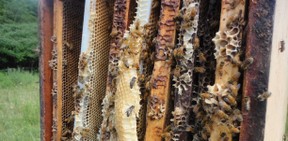 The actual practice of harvesting honey has evolved somewhat over the years, and as technology improves and better suits and gadgets appear in the marketplace it has become considerably easier and possible to get much more honey in a shorter period of time. But I can remember back in the 1980s when we used black velvet fume boards which were essentially wooden picture frames covered in black velvet material that got hot in the sun. On these frames we squirted a noxious substance called Bee-Go then we left the frames on top of the super boxes in the day's heat. The thick semi-toxic fumes sunk down through the hive and forced all the bees to run out the front of the hives.
The actual practice of harvesting honey has evolved somewhat over the years, and as technology improves and better suits and gadgets appear in the marketplace it has become considerably easier and possible to get much more honey in a shorter period of time. But I can remember back in the 1980s when we used black velvet fume boards which were essentially wooden picture frames covered in black velvet material that got hot in the sun. On these frames we squirted a noxious substance called Bee-Go then we left the frames on top of the super boxes in the day's heat. The thick semi-toxic fumes sunk down through the hive and forced all the bees to run out the front of the hives.
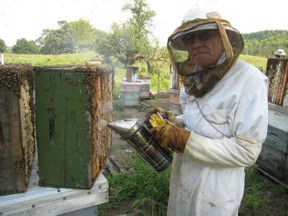 Now we use a variety of different, cleaner and more efficient tools including gas powered bee blowers and high quality bee smokers. The most effective way to get honeybees out of a super box is to simply set the box up on its end on top of the hive and liberally smoke the comb with the bee smoker. This technique almost always drives the bees out to of the wax combs and the gather about and linger on top of the wooden super boxes where they can be easily blown away into the trees by the bee-blower operator.
Now we use a variety of different, cleaner and more efficient tools including gas powered bee blowers and high quality bee smokers. The most effective way to get honeybees out of a super box is to simply set the box up on its end on top of the hive and liberally smoke the comb with the bee smoker. This technique almost always drives the bees out to of the wax combs and the gather about and linger on top of the wooden super boxes where they can be easily blown away into the trees by the bee-blower operator.
Commercial beekeepers harvesting honey in southeastern Ontario.
Harvesting Honey in Southeastern Ontario
You might also like
Rudolf Steiner: The Bee Lectures of 1923 and Biodynamic Predic...Not all pain sufferers fear bee venom. Not all sweets seekers like honey. But...
Are Bees Linked to the Survival of the Human Race (Video)Bees are dying, and studies have linked the survival of the human race to thi...
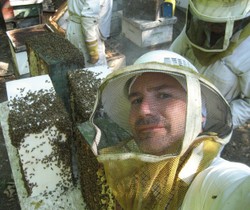


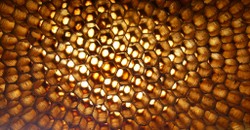
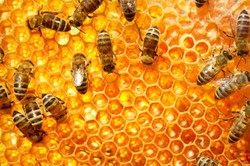
Comments